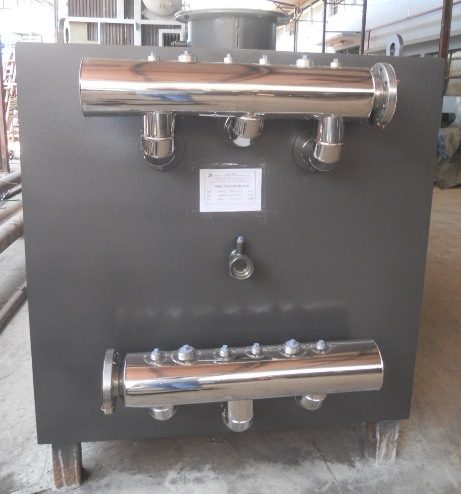In the context of mining and metallurgical processes, an elution circuit is a crucial component used to recover valuable metals, such as gold and silver, from loaded carbon. Thermal oil, a type of heat transfer oil or heat transfer fluid, is often used in the elution circuit to facilitate the elution process.
Let’s delve into why thermal oil is necessary in this circuit and how it aids in the recovery of precious metals.
READ MORE: Elution Heaters
Why Use Thermal Oil?
Heat Transfer and Temperature Control
Thermal oil acts as a heat transfer oil in the elution circuit. Elution is a process where the adsorbed gold and silver on activated carbon are desorbed and recovered. Heat is required to facilitate this process effectively. Thermal oil is used to transfer heat to the elution vessel, ensuring that the temperature within the vessel is maintained at an optimal level for the desorption of metals from the carbon.
Energy Efficiency
Thermal oil systems are known for their high thermal efficiency. Using thermal oil allows for precise temperature control and efficient heat transfer, ensuring that energy is utilized effectively during the elution process. This efficiency is crucial for the overall cost-effectiveness and productivity of the elution circuit.
Consistent Temperature Profile
Maintaining a consistent and precise temperature profile within the elution vessel is critical for the successful desorption of gold and silver from the activated carbon. Thermal oil ensures that the temperature remains uniform throughout the vessel, providing ideal conditions for the elution process and preventing temperature fluctuations that could negatively impact metal recovery.
Thermal Stability
Thermal oil offers excellent thermal stability at elevated temperatures, making it a highly suitable heat transfer oil for the high-temperature requirements of the elution process. It can withstand the heat without degrading or forming by-products that could interfere with the metal recovery process.
Safety and Environmental Considerations
Thermal oil is preferred in elution circuits due to its relatively high flash and autoignition points, making it a safer option compared to some other heat transfer oils. Additionally, it is less likely to release harmful emissions, enhancing workplace safety and environmental friendliness.
READ MORE: Heat Transfer Oils
Thermal oil is preferred over regular mineral oil for specific applications, including in elution circuits, due to several key characteristics that make it more suitable for high-temperature heating and heat transfer processes.
Here are the main reasons why thermal oil is favored over mineral oil in such applications:
Why Thermal Oil Is Better Than Mineral Oil
Higher Thermal Stability and Temperature Range
Thermal oil is engineered to have a higher thermal stability and can operate at significantly higher temperatures compared to regular mineral oil. This makes it ideal for applications that require precise temperature control at elevated temperatures, as often seen in industrial processes like in an elution circuit.
Consistent Performance at High Temperatures
Thermal oil maintains its properties and performance at higher temperatures without breaking down or degrading. This consistency is crucial in industrial processes where a stable and uniform temperature is necessary for efficient operations and quality outcomes.
Low Vapor Pressure
Thermal oil typically has a lower vapor pressure compared to mineral oil at elevated temperatures. This characteristic is important for safety, as it reduces the risk of the oil vaporizing and potentially causing pressure build-up or other safety hazards in the system.
Less Flammable and Lower Fire Risk
Thermal oil formulations are designed to have higher flash and autoignition points compared to regular mineral oil. This reduces the risk of the fluid catching fire or igniting, making it a safer choice, especially in applications where higher temperatures are involved.
Better Heat Transfer Efficiency
Thermal oil has superior heat transfer properties compared to mineral oil. Its higher thermal conductivity allows for more efficient heat transfer within the system, ensuring that the desired temperature is reached and maintained more effectively.
Longer Service Life
Thermal oil tends to have a longer service life and requires less frequent replacement compared to mineral oil. This is due to its ability to maintain its properties and stability at high temperatures for extended periods, resulting in reduced maintenance and operating costs.
Customizable Formulations for Specific Applications
Thermal oil can be tailored to meet the specific requirements of a given industrial process. Duratherm blends its thermal oil with packages of anti-oxidizing additives and properties optimized for particular applications, such as those needed in elution circuits.
In summary, thermal oil is preferred over mineral oil for high-temperature applications like elution circuits due to its superior thermal stability, consistent performance, lower flammability, better heat transfer efficiency, and longer service life. These qualities make it a more suitable and efficient heat transfer medium in industrial processes that demand precise temperature control and safety at elevated temperatures.


Recent Comments